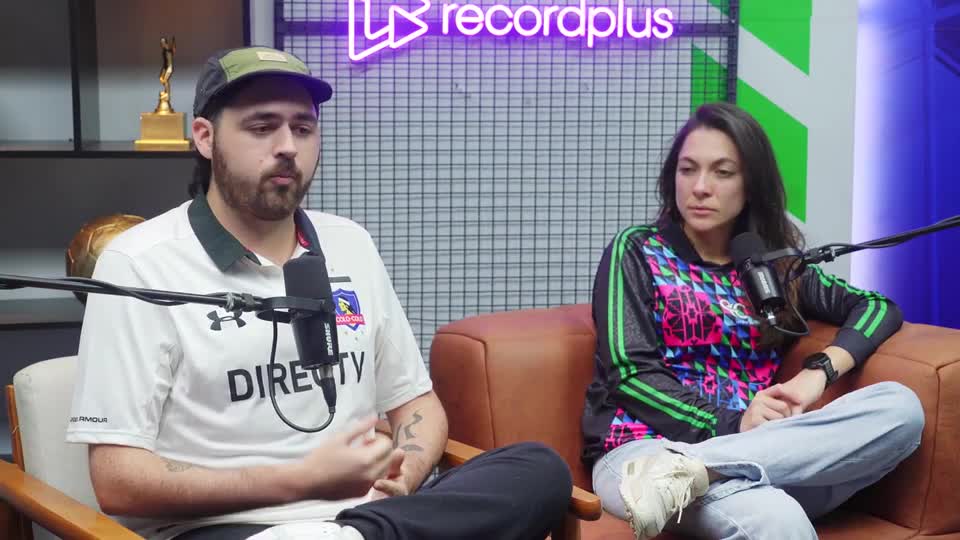The bizarre ways food messes with the medicines we take
sm
13 Sep 2025(atualizado 13/09/2025 às 20h07)Occasionally the food we eat can interfere with the way drugs are supposed to work. Now scientists a

The bizarre ways food messes with the medicines we take
Occasionally the food we eat can lugar para jogar jogos de tabuleirointerfere with the way drugs are supposed to work. Now scientists are trying to harness these effects to boost the efficacy of treatments.
It was an embarrassing problem. And, after five hours with a constant erection, a painful one.
Doctors were initially baffled by the predicament of a 46-year-old man who turned up at a hospital emergency room in Tamilnadu, India. He had taken the drug sildenafil – better known as Viagra – for erectile dysfunction before having sex with his wife. Yet, even though he had taken the drug well within prescribed doses, nothing he could do would deflate the situation.
When questioned further, his doctors learned the man had also drunk a hefty slug of pomegranate juice beforehand. They treated him with a jab to counteract the effects and advised him to lay off the juice in future – it had, they concluded,?inadvertently boosted the potency of the drug he was taking.
The case is just one example of how the food we eat can interact with medications in unpredictable ways. There is a rich body of medical literature detailing bizarre – and sometimes worrying – occasions when foods have combined with drugs to produce unusual side-effects. While most of this exists as anecdotal reports of individual or small clusters of cases, there?there is also now a growing body of research detailing the several ways that foods, drinks and herbs can interact with pharmaceuticals inside the human body. Grapefruit, for example, has long been known to boost the power of a wide range of drugs, increase the risk of side effects or even make normal doses toxic. Fibre-heavy foods, on the other hand, can make some drugs work less effectively.
Although pharmaceuticals usually go through decades of development and testing to ensure they are safe and effective, there are thousands of types of drugs on the market and millions of combinations of foods they could be paired with. Scientific reviews suggest food interactions can be a major threat to safe and effective oral pharmacotherapy. Experts are only now starting to track these interactions systematically, and some even hope to harness these combinations to make drugs work better than they would on their own.
"Most drugs are unaffected by food," says Patrick Chan, professor of pharmacy practice and administration at Western University of Health Sciences in California. "In the certain cases where certain drugs are affected by food, those are the ones we need to watch out for."
Both the US Food and Drug Administration and the European Medicines Agency require that drugs undergo food-effect testing, with trials involving people who have either fasted or eaten a high-calorie, high-fat meal – two slices of toast with butter, two slices of fried bacon, two fried eggs, some hash-brown potatoes, and a large glass of whole milk.
But it is almost impossible for them to test everything. And human metabolism is complicated, says Jelena Mile?evi?, a research associate at the Center of Research Excellence in Nutrition and Metabolism in Belgrade, Serbia. "It's like a little factory and you have a lot of inputs and a lot of outputs," she says.
Once all the chemical reactions of the body, of the food, and of the drug are meshed together, "it's huge, and it's very difficult to separate", says Mile?evi?, who has been researching how vitamin D affects drugs in the body, and vice versa.
Food can affect the medication we take in two ways: it can interact with the active ingredients in the drug, or it can alter how our body itself reacts to a drug.
Some food-drug combinations have been known since the 1980s. One well-known example is how grapefruit and grapefruit juice can interfere with drugs, including some cholesterol-lowering drugs such as statins, along with medicines used to treat high blood pressure, such as nifedipine and felodipine. It also interacts with cyclosporine, a drug used to suppress the immune system to avoid organ rejection after an organ transplant, and several other pharmaceuticals widely used by patients around the world.
Grapefruit can also increase how much of a drug is available to be picked up in the bloodstream, and so make the potency of a dose higher, including some anti-malarial drugs like artemether and praziquantel, and antiviral drugs like saquinavir. It does this by inhibiting a key enzyme called cytochrome P450 3A4, which is responsible for breaking down many different types of medicines. This can lead to the drugs accumulating to levels where they can even become toxic, such as with the erectile dysfunction drug sildenafil, which is sold as Viagra.
"Without this enzyme, the drugs stay longer in the body and the concentrations can become very toxic," says Maria da Gra?a Campos, who runs the Observatory of Drug-Herb Interactions at the University of Coimbra, in Portugal. And fruit juices tend to have more potent interactions because they are often condensed, meaning they contain higher levels of active compounds that interplay with drugs than the fruit itself.
That's also how cranberries were thought to interact with warfarin. Dozens of case reports of patients drinking cranberry juice – or in one case guzzling down half a cup (113g) of cranberry sauce in turkey sandwiches every day for a week as he used up Thanksgiving dinner leftovers – suggested cranberries could boost the blood thinning effect of warfarin. Clinical tests and systematic reviews of the evidence, however, have concluded that normal levels of consumption of cranberries should not interfere with warfarin, although it should be noted that one widely cited randomised trial that failed to find an interaction was funded by a cranberry juice manufacturer.
"Most of the literature is confined to very poor quality case reports that ignore obvious confounders," says Anne Holbrook, the director of clinical pharmacology and toxicology at McMaster University in Hamilton, Canada. Answering these questions requires at least several hundred patients randomised to warfarin alone, compared to warfarin and cranberry, in case scenarios where cranberry products are standardised, says Holbrook. The type of juice – fresh, concentrated or an extract – along with the amount of fruit and the timing compared to taking the drug can also affect the interaction, says Andrew McLachlan, dean of pharmacy at the University of Sydney.
In 2011, the US Food and Drug Administration updated their medication guidance for warfarin, removing warnings about cranberry, but the UK's NHS continues to warn patients to avoid drinking cranberry juice when taking the drug.
Liquorice?is another food that has been found to interact with drugs by acting on a number of cytochrome enzymes that normally act to break down pharmaceuticals. It affects medications including the heart disease drug digoxin and some antidepressants. But studies closely quantifying this effect suggest that it also shouldn't cause any clinically relevant side effects.
These are all reasons why interactions between foods and drugs are best understood with a sliding scale type of approach: "We can't think of drug interactions as 'all or none'," says Chan. "Drug interactions are graded; they can be severe, moderate, or minor."
In 2017, da Gra?a Campos uncovered another strange interaction when a patient taking medication for his arthritis was rushed to the hospital with pains in his limbs and anaemia. It transpired that the patient had drunk an infusion of artichoke that interacted with the arthritis drug, called colchicine, along with some other medication he was taking for diabetes and hypertension. Some biochemicals from the artichoke appeared to have inhibited his body's ability to deal with the drugs normally, causing a toxic buildup in his liver.
"It was really, really bad," says da Gra?a Campos. "In the beginning, we thought that he could need a liver transplant. It was really, really complex." Fortunately, the patient made a spontaneous and complete recovery.
Herbs and extracts like artichoke infusion are used in traditional medicines and aren't closely regulated, says da Gra?a Campos, despite sometimes being as potent as synthetic drugs.
Similarly, Da Gra?a Campos has also studied a clinical case where turmeric and a nutritional supplement made from chlorella algae interacted with a patient's cancer medications and caused extreme toxicity in the liver. Turmeric is also known to strengthen the effects of blood thinners and diabetes drugs. Extracts from the flower St John's Wort can interact with anti-anxiety and anti-depressant medications, certain contraceptives, and some chemotherapy drugs.
"It is really, really important that people understand that herbs can cause lots of interactions," says da Gra?a Campos. Again, though, more clinical trials are needed to see whether these patterns are persistent and widespread, or sometimes just one-off cases.
Interactions don't always make drugs more toxic or more dangerous: they can undermine their effect too. Warfarin (the anticoagulant drug whose interaction with cranberries is contentious) does seem to have an unusual relationship with vitamin K found in leafy greens. When it meets with vitamin K in the bloodstream, warfarin's effectiveness is decreased. That doesn't mean patients on warfarin shouldn't eat leafy greens, but it means the dosage of their therapy needs to be tailored to their usual diet, and their diet needs to stay consistent. "You eat a lot more green vegetables than I do? The doctor will probably increase the warfarin dose for you, to counteract the effect of the green leafy vegetables," says Chan.
Patients who take a class of antidepressants known as monomine oxidase inhibitors (MAOIs) are usually advised to adopt a diet that is low in fermented foods and some mature cheeses due to their high levels of tyramine. This enzyme alters the body's ability to metabolise tyramine and can lead to spikes in blood pressure.
More like this:
??The people being deliberately infected with diseases
??What happens when you stop taking weight-loss drugs
??How Western medicine can learn from the ancient use of psychedelics
Dairy products like milk, yoghurt and cheese can change how certain antibiotics (such as ciprofloxacin and norfloxacin) are absorbed by your digestive system – a mechanism researchers call the "cheese effect". Foods heavy in fibre, like wholemeal cereals, can also have a similar effect. The molecules from the dairy and fibre seem to effectively "hug" the molecules from the medication while they're in the intestines and stop them from entering the bloodstream, says Chan.
"The drug doesn't even end up in your blood, because in your intestines the dairy products bind to medication and it gets stuck in your gut," says Chan. The solution here is simple, says Chan, patients should avoid consuming dairy products two to four hours before or after the prescribed antibiotic. "You can still have your milk and cheese in there, just don't take it at the same time," says Chan.
While these interactions might seem a little scary, it's not all doom and gloom.
There are some researchers who are hoping to harness the interactions between medications and the food, drinks and herbs we consume in the hope of boosting the effect of pharmaceutical treatments in ways that are helpful. Some oncologists, for example, have been trying to make cancer treatment more effective by exploiting the way food interacts with certain treatments.
Lewis Cantley, a cell biologist now at Harvard Medical School in Boston, Massachusetts, found that a pathway that regulates cell growth and is a target for some cancer drugs appears to respond to treatment better when accompanied by foods low in sugar.
"Humans evolved hundreds of thousands of years ago to eat meats and uncooked vegetables, which do not cause a rapid elevation of glucose after meals," says Cantley. Cancer was probably a rare cause of death thousands of years ago, and the increase in cancers seen over the past five decades is "very likely" linked to the dramatic increase in our consumption of foods with rapid-release carbohydrates, he says.
Cantley's experiments in 2018 feeding mice a ketogenic diet – low in carbs, high in meats and veggies – showed promising preliminary results where an anti-cancer drug worked more effectively on the dieting mice. So his team has been trialing the effects in a small number of human patients through his start-up Faeth Therapeutics in what he calls an attempt to "rethink the science of cancer using metabolism". Similar trials involving Cantley's meal prep packages are also underway at New York's Memorial Sloan Kettering Cancer Center with women with endometrial cancer.
But a major outstanding challenge remains the sheer number of food-drug interactions. That's why nutrition researcher Mile?evi? has even joined forces with a team of computational biologists to collate all the information about food-drug interactions available in the scientific literature in one well-organised database in the hope of tracking them better.
"We thought that it would have been easier, but it was not so simple, we had to start from the beginning," says Enrique Carrillo de Santa Pau, a computational biologist from IMDEA Food Institute in Madrid, Spain, who worked on the project. Few databases were available, and none of them matched consistently. They ended up collating data from millions of food-drug interactions in a new platform for clinicians to access.
It's a complex picture and one that is still being unravelled. But in the future it could also mean that doctors can recommend a diet that will complement a course of medication. In the meantime, it's probably best to lay off the Viagra and pomegranate juice.
* Disclaimer: All content within this article is provided for general information only, and should not be treated as a substitute for the medical advice of your own doctor or any other health care professional. The BBC is not responsible or liable for any diagnosis made by a user based on the content of this site. The BBC is not liable for the contents of any external internet sites listed, nor does it endorse any commercial product or service mentioned or advised on any of the sites. Always consult your own GP if you're in any way concerned about your health.
--
For?trusted insights into better health and wellbeing rooted in science, sign up to the Health Fix newsletter,?while?The Essential List?delivers a handpicked selection of features and insights.
For more science, technology, environment and health stories from the BBC, follow us on?Facebook?and?Instagram.
Copyright 2025 BBC. All rights reserved. The BBC is not responsible for the content of external sites.?Read about our approach to external linking.
- enciclopédia 'The most ingenious stunt since the Trojan Horse' The Soviet artwork that spied on the US.txt md
- conhecimento BBC Audio Global News Podcast Hamas claims leadership survived Israeli attack in Doha.txt plxwa
- entretenimento Prazer, Renata: A revolu??o do prazer sexual feminino — com Carmita Abdo aluw
- conhecimento Bolsonaro est\u00e1 sendo enterrado vivo', diz coronel Mello Ara\u00fajo depois de visita ao ex-presidente k
NEWSLETTER GRATUITA
Nexo | Hoje
BBC Audio Desert Island Discs Cyndi Lauper, singer-songwriter.txt
GRáFICOS
nos eixos
American Eagle's shares soar as Sydney Sweeney ads boost sales.txt
Navegue por temas














